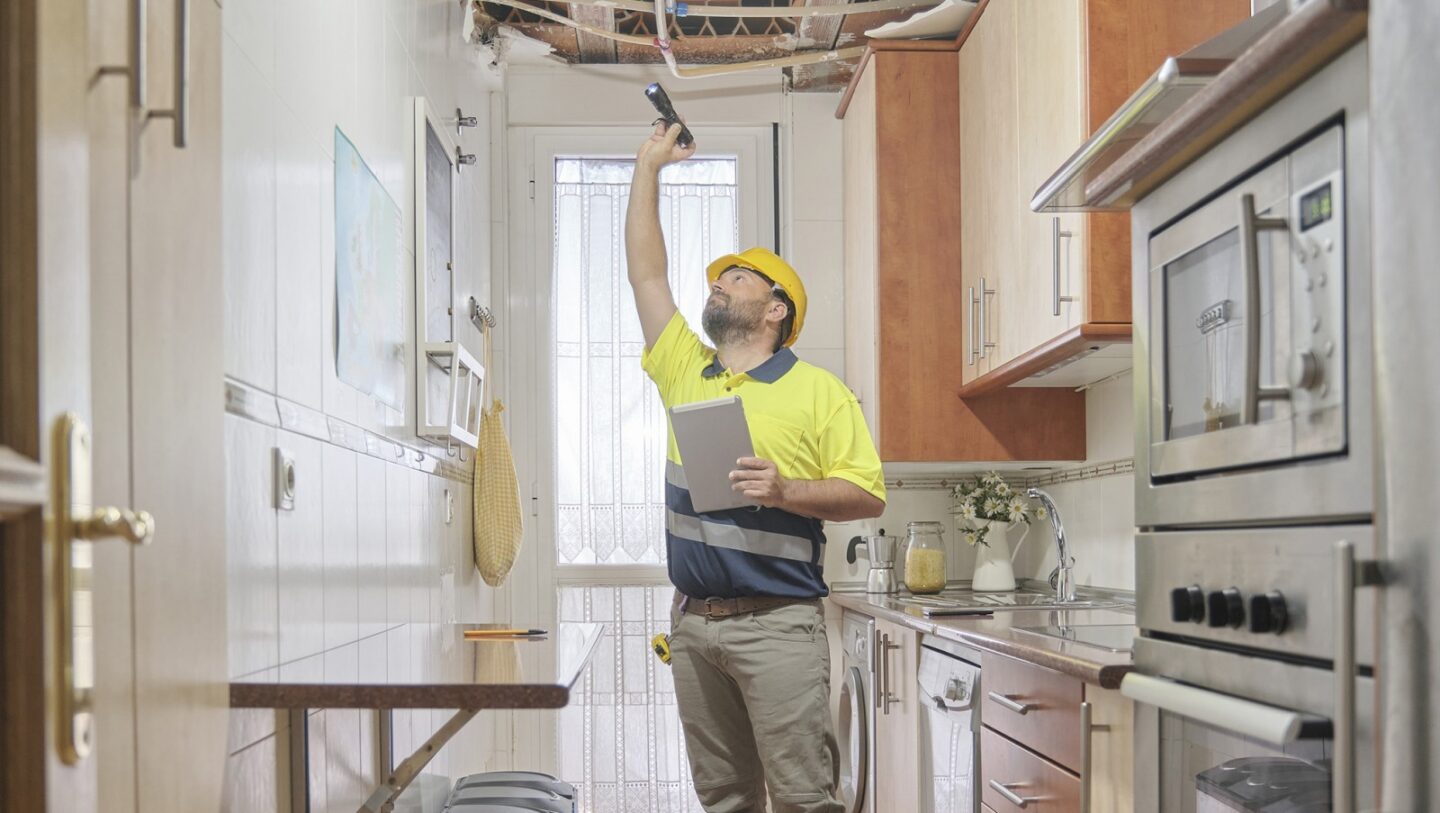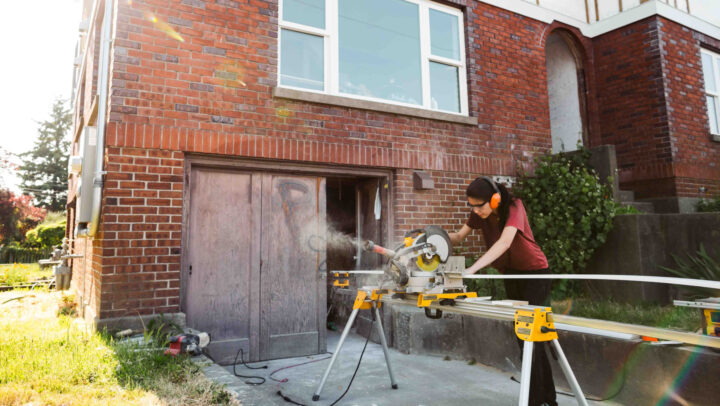Home Inspections and Why They Matter


Written by Tali Bendzak on May 15, 2025
Inspecting a home before purchasing it is an important, but optional, step in the home-buying process. Completing a home inspection can arm you with knowledge about the extent and nature of any home defect, and ensure such defects are either corrected and/or negotiated into the sale price.
What is a home inspection?
A home inspection is a professional analysis of the condition of a home. It’s completed by a licensed home inspector, who will both visually inspect and test the home’s major components and systems over the course of a few hours to produce a comprehensive report; home inspection requirements do vary by state, but in general, will cover major structural deficiencies. The report will detail findings on both major and minor property flaws and will make recommendations on items that should be repaired or replaced due to safety concerns and typical wear and tear.
What a home inspection isn’t
It’s important to know that an inspection deals strictly with the condition of a home. It doesn’t address the value of the home. An appraisal assesses a home’s value and will likely be required for financing.
An inspection also won’t detail the costs for completing recommended repairs. If your home inspector recommends repairs, you’d need to talk to a contractor or have a specialized inspection done to estimate costs.
Types of home inspections
Home inspections fall into two main categories: standard home inspections and specialized inspections. A standard home inspection is a general assessment of the home’s condition and major systems, while a specialized assessment is a deep dive on a particular component.
Standard home inspection
A standard home inspection is the most common type of pre-purchase property inspection. This general inspection covers the interior and exterior of the home, including the foundation, roof, crawl space and other structural components. Your inspector will also check the home’s major systems, including the plumbing, HVAC (heating, ventilation and air conditioning), electrical, appliances and garage doors. They’ll also look for drainage or grading issues on the property or visible mold or the suspicion of mold.
In a standard home inspection, the inspector won’t look inside walls, chimneys, pipes, sewer lines or behind electrical panels.
A standard home inspection takes three to four hours and costs between $250 and $700, depending on where you live and the size of the home.
Specialized inspections and testing
A specialized inspection is often recommended as a follow-up when a standard inspection flags a potential problem, especially one that is a health or safety concern. However, buyers can also request specialized inspections alongside a standard inspection. Specialized inspections are typically conducted for issues like mold, pests, radon, lead-based paint, asbestos, sewer lines and septic systems; there are state-specific inspections that are legally required.
Each specialized inspection requires a different type of inspector, and you’ll need to pay each one separately. Costs vary widely depending on the type of service. For example, termite inspections can cost as little as $100, whereas a sewer line inspection can cost upwards of $700.
Talk to your agent about common specialized inspections in the region. They will be familiar with the age and history of homes in the area and related issues that could impact your offer price.

Why get a home inspection
There are multiple reasons why getting a home inspection is a smart move for home buyers. First, it’s impossible to assess the condition of a home and its major systems in just a simple walkthrough. A professional home inspector can take a more detailed look at the house you’re planning to buy and raise a red flag for any potential health and safety issues, alongside any expensive repairs that might be on the horizon.
In addition to peace of mind, most buyers opt to have an inspection done alongside a home inspection contingency. With a home inspection contingency in place, as long as stipulated in the purchase agreement, you can walk away from the deal without losing your earnest money deposit, based on any issues uncovered during the inspection.
Is a home inspection required?
If you’re buying a home with a conventional loan, your lender won’t require you to have a home inspection. If you’re using an FHA or VA loan, your lender usually will require an inspection before approving your loan, as purchasing a home with major issues is a financial burden that could put your ability to repay the loan at risk.
What is a home inspection contingency?
A home inspection contingency is a clause in your purchase agreement with a seller that protects your earnest money and allows you to cancel the deal if major or minor issues in the home’s condition are uncovered during an inspection.
Typically, your inspection contingency will allow five to 10 days to conduct the inspection and request any repairs in writing.
Why include a home inspection contingency
A home inspection contingency gives you the flexibility you need to ensure you’re making a smart purchase decision. It allows you to gain a better understanding of the condition of the home without risking a huge investment.
Without a home inspection contingency, you’ll have to forfeit your earnest money if your inspection uncovers major issues. Since earnest money deposits are typically 1 to 3 percent of the home’s purchase price—$3,500 to $10,500 on a $350,000 home—the few hundred dollars for a home inspection is a relatively small price to pay.
Waiving your home inspection contingency
In competitive markets, buyers often waive their inspection contingency in order to make their offer stand out. However, without the contingency, any issues uncovered during an optional home inspection would not be a contractual reason to walk away from the purchase without forfeiting your earnest money.
Other ways to get cues about a home’s condition
Even without an inspection, there are a few other ways you can get a feel for the home’s condition. First, eager sellers will sometimes complete a pre-inspection and share the results with potential buyers. This happens in markets where there are more homes available than buyers looking for homes and sellers want to stand out.
You should also take a look at the seller disclosures, which are required to include known issues and unpermitted work
When to complete a buyer home inspection
The first step in the buyer home inspection is including a contingency when you write your purchase offer.
Once your offer is accepted, the home will go “pending” and you should schedule your home inspection to take place within the next week.
Since the buyer typically pays for the inspection, there’s no reason to pay for an inspection before you’re in contract with the seller.
What happens during a home inspection
On the day and time of your inspection, it’s important that you attend. The inspector will conduct their inspection and then walk you through the home and tell you what they’re looking for. Be sure to ask questions and call out anything that you see. Many answers and final findings will be delivered in the inspection report.
Note that you’ll need to pay your inspector at the time of service. They’re not part of your closing costs nor can you roll the costs into your loan.
What happens after a home inspection
Within a few days of the inspection, you’ll receive the inspection report. After you’ve had a chance to review it, work with your agent to decide on your next steps. Remember, if you have a contingency in place, you can use any repair or issue as a reason to cancel the deal.
If you’re using an FHA or VA loan, you’ll need to confirm that nothing in the inspection report raises a red flag with your lender, and that they’ll still finance the loan. It’s also worth noting that FHA and VA lenders typically have more stringent requirements for appraisals than inspection reports.
If your inspection report recommends any fixes and you have a contingency in place, you’ll be able to renegotiate the deal with the seller. Your options include:
- Asking for a reduction in price
- Asking for cash back at closing to address the repairs
- Requesting that certain items are professionally repaired before closing
- Backing out of the deal entirely if you’re not comfortable with the report findings and/or if the seller is unwilling to renegotiate
Home inspection on a new home
Even if you’re buying a new construction home, you can still conduct a home inspection and include a home inspection contingency in your offer. You may even be able to include in your offer the permission to conduct multiple specialty inspections throughout the build process, like a pre-concrete foundation inspection, a pre-drywall inspection of the structure and mechanics and a standard inspection once the home is completed.
While it’s less likely that a new build will have major issues, having an inspection on a new home can still provide peace of mind.
A home is a large purchase, and completing a home inspection and including an inspection contingency are smart ways to safeguard your investment and protect yourself from unexpected repairs after closing.
How much home can you afford?
At Zillow Home Loans, we can pre-qualify you in as little as 5 minutes, with no impact to your credit score.
Zillow Home Loans, NMLS # 10287. Equal Housing Lender
Get pre-qualifiedHow much home can you afford?
See what's in reach with low down payment options, no hidden fees and step-by-step guidance from us at
Zillow Home Loans.
Zillow Home Loans, NMLS # 10287. Equal Housing Lender
Calculate your BuyAbility℠



